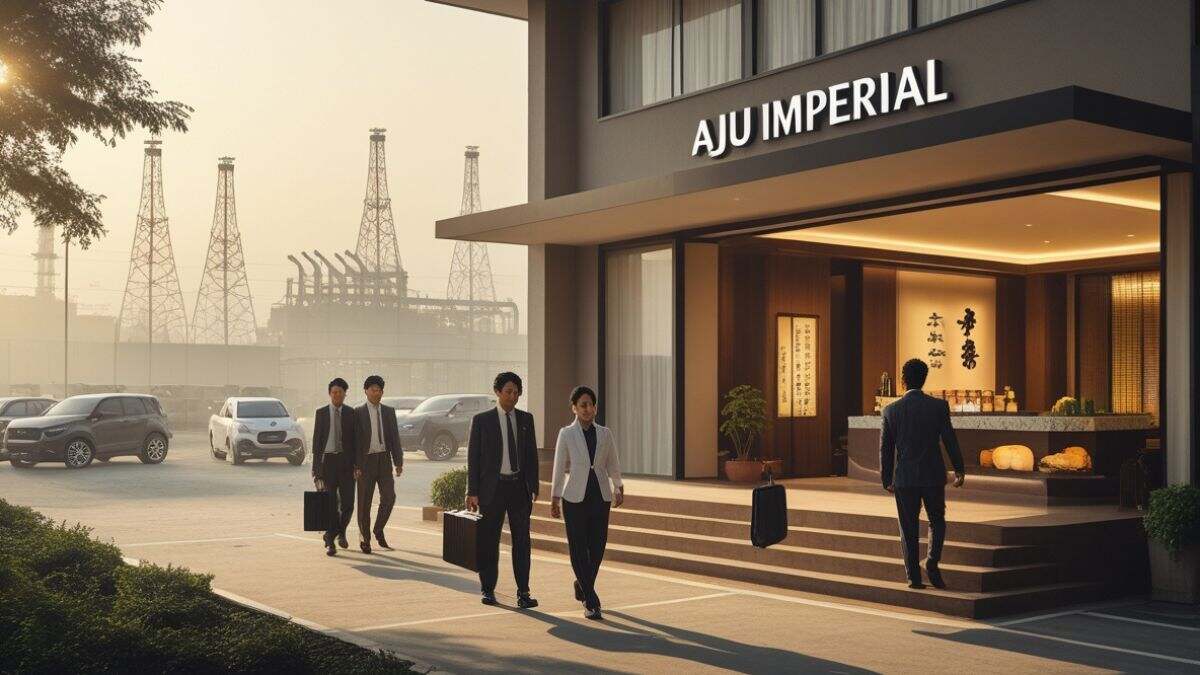Suzuki has an eight-year-old facility that began producing its first electric vehicles in August, while Honda’s motorbike division began manufacturing at Vithalapur over ten years ago.
Japanese Cuisine Hits Vithalapur
It is considered taboo to consume meat or seafood in Gujarat, India, yet hotels with names like Osaka Palace are serving ramen and tempura in Vithalapur, the dusty industrial hub of the state, to appease the Japanese managers and auto engineers who now call it home.
Increased foreign investment in Indian manufacturing, one of Prime Minister Narendra Modi’s main policy pillars, is largely responsible for the change of the farmlands of Vithalapur, which is located 75 km (46 miles) east of Gandhinagar, the state capital.
Suzuki has an eight-year-old facility that began producing its first electric vehicles in August, while Honda’s motorbike division began manufacturing at Vithalapur over ten years ago. Numerous suppliers associated to the automotive industry as well as other industrial Japanese businesses have also established themselves.
Japanese Investment to Local Hospitality
According to official figures, Japanese direct investment in India reached $2.5 billion for the year ending March 31, a 27% increase from four years before. The majority of this investment went to the electronics and automotive industries.
Mizuki Ryokan and Midori are two of six successful highway motels near Vithalapur’s industries, and they employ Japanese workers on multi-year contracts in India. The community has grown so much that Hyatt plans to erect a 108-room hotel this year.
However, many Japanese may experience severe culture shock while visiting Gujarat, Modi’s home state. Because of their religious and cultural adherence to Jainism and Hinduism, many Gujaratis are quite rigorous about vegetarianism. With just a few strictly restricted exceptions for foreigners, the state is also one of the few Indian states that outlaw alcohol.
Luxury Hotel Caters Japanese Expats
Early attempts by Japanese expatriates to settle into normal homes in neighboring cities failed because it was sometimes too difficult to get meat and seafood. A costly luxury by Indian standards, the 110-room AJU Imperial (AJU stands for All Japanese Utility) aims to provide home comforts like sushi cooked with seafood imported from as far away as Australia, signs in Japanese, and Toto washlet toilets.
Prakash Yadav, the hotel’s creator and managing director, said, “We wanted to provide them the comfort of location and cuisine so they can concentrate on work.” The hotel can accommodate up to 100 foreigners at a time. However, Yadav noted that the state’s prohibitions on alcohol use continue to be a problem for foreigners.
Gujarat compels hotels and tourists to seek special government permissions in order to drink alcohol. These permits are provided after a drawn-out procedure and must be renewed often. Even yet, their monthly purchasing power is limited. In order to open a liquor shop in his hotel, Yadav has been awaiting an alcohol permission since 2019. “Guests must travel three hours to Ahmedabad city to purchase their monthly supplies till we get a license.”

